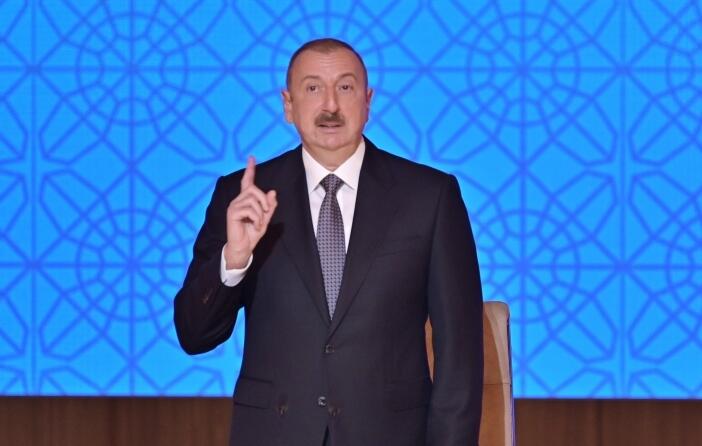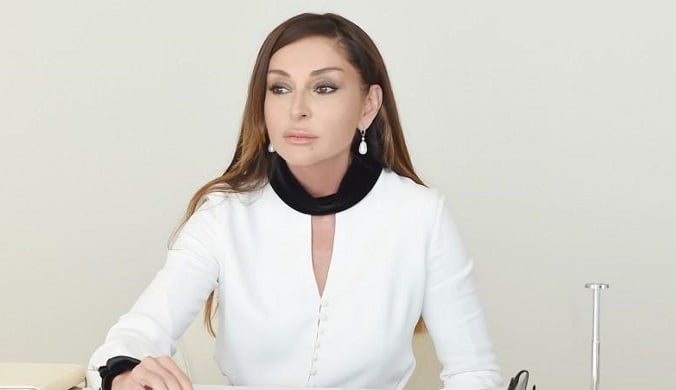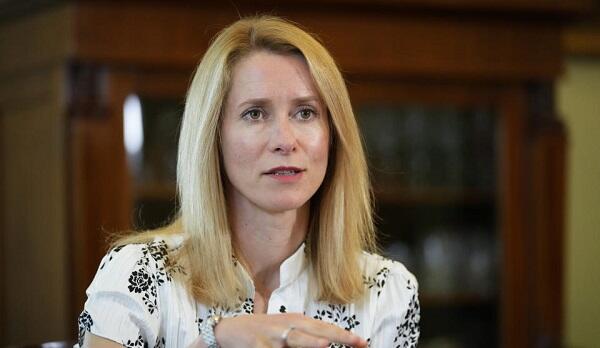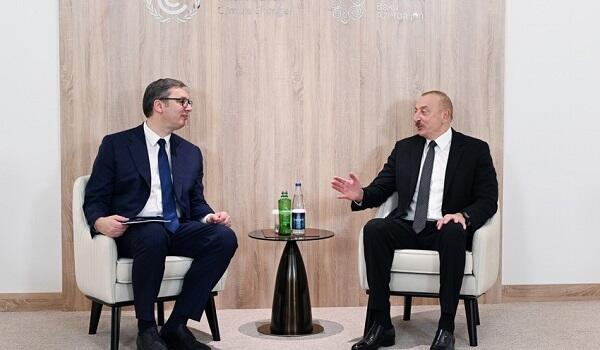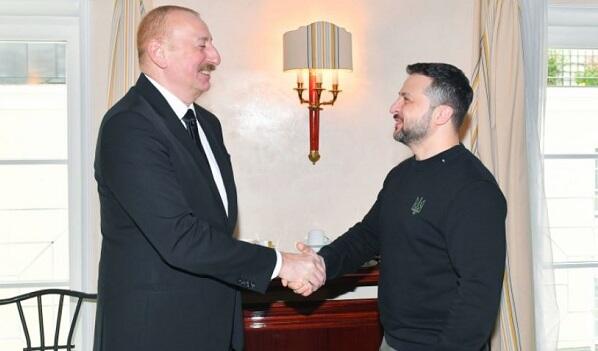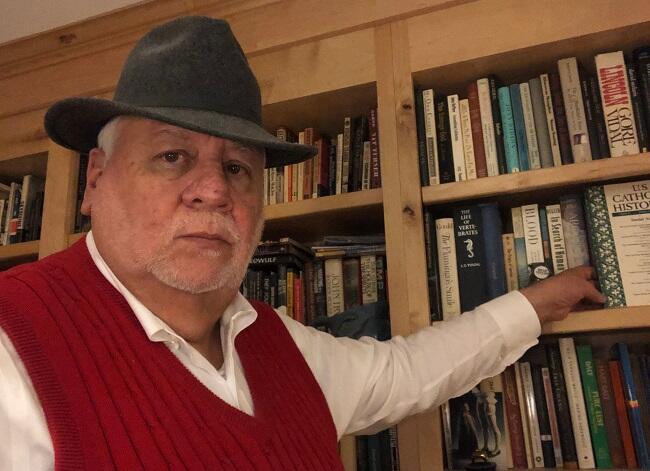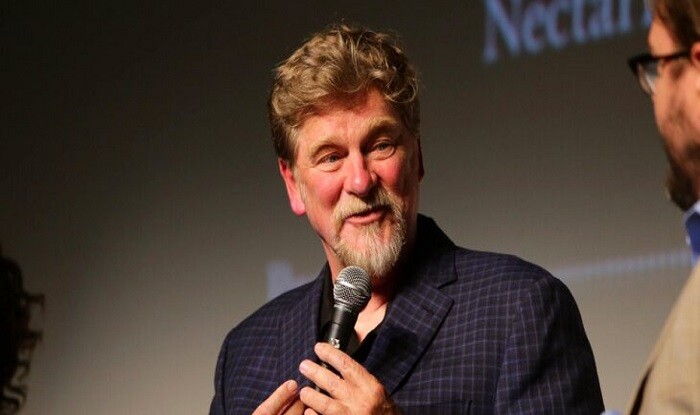You'd like to be smarter, more efficient, more successful, and happier. And you know that TED Talks are full of lessons on how to get that way. But most of them take 15 to 20 minutes to watch, and you just can't do it in the middle of a busy day.
Axar.az reports citing TIME.
Do you have three minutes? The ever-helpful folks at TED have put together a compilation of amazing, informative, and entertaining talks that each last about that long. They cover everything from how to be successful, to how to tie your shoes better, to how a life-threatening diagnosis can turn out to be a beautiful gift.
They're all worth the time investment—and then some. Here are a few of the lessons you'll learn:
1. Doing 30-day challenges will give you a more memorable life.
"The idea is actually pretty simple," explains Google engineer Matt Cutts. "Think about something you've always wanted to add to your life, and try it for the next 30 days. It turns out 30 days is just about the right amount of time to add a new habit or subtract a habit—like watching the news—from your life."
Thanks to his own 30-day challenges, Cutts says he went from "desk-dwelling computer nerd" to "the kind of guy who bikes to work. For fun!" he says. As he did more and harder 30-day challenges, his confidence grew, he says. He wrote a novel. Last year, he hiked up Mount Kilimanjaro, the highest mountain in Africa. "I would never have been that adventurous before I started my 30-day challenges," he says.
Perhaps most important, the challenges have changed the way he experiences his life. "Instead of the months flying by, forgotten, the time was much more memorable," he says. So, he asks, "what are you waiting for? I guarantee you the next 30 days are going to pass whether you like it or not, so why not think about something you have always wanted to try and give it a shot? For the next 30 days."
2. Here are the eight things you need to do to be successful.
On a plane on the way to a TED conference, a teenager sitting next to Richard St. John asked a simple question: What leads to success? Answering that question grew into an obsession, and St. John spent the next 10 years asking 500 very successful people how they'd done it.
The results make for a fast-paced and fascinating talk, distilling their many answers into a powerful lesson. (Hint: If you're doing it for the money, you're on the wrong track.)
3. Meetings work better when you're walking.
We've all heard the dangers of sitting for too many hours, and yet we all do it. Author and speaker Nilofer Merchant has a solution: Take all your meetings walking instead of around a conference table. Not only will it make you healthier--she herself walks 20 to 30 miles a week this way--it will help the free flow of ideas. (And if that's not enough to persuade you, I'll just mention that Steve Jobs insisted on having all his important meetings while walking.)
4. You've been tying your shoes wrong your whole life.
No, I'm not kidding. The way we all learned to tie our shoes as children leads to a weak knot, whereas one small change creates a knot that both holds together better and looks a lot better, as Terry Moore, director of the Radius Foundation,demonstrates. Even if you favor slip-ons, it's worth taking three minutes to see how.
5. Emoticons can express more than you think.
I'll admit it. This 3:17 talk from the performance poet Rives won't teach you very much, unless you're a creative emoticon user, in which case it may provide some inspiration. But this sweet little tale of a chance encounter will put a smile on your face and make you glad you took the time to watch.
6. When something awful happens, it can be a tremendous gift.
When Stacey Kramer, founder of the branding company BrandPlay, found out she had a brain tumor called hemangioblastoma, it turned out to be a gift. Not only did she gain a new perspective on spirituality, she developed a healthier lifestyle, increased her vitality, saw friends she hadn't been in touch with for years, gained serenity, ate countless gourmet meals, and received masses of flowers. Not only that, she got to spend eight weeks doing absolutely nothing, and was given a lifetime supply of good drugs.
"While I'm OK now, I wouldn't wish this gift for you," she tells the audience in her thought-provoking talk. "I'm not sure you'd want it. But I wouldn't change my experience. It profoundly altered my life in ways I didn't expect."
So, she advises, "the next time you're faced with something that's unexpected, unwanted, and uncertain, consider that it just may be a gift."
7. Being a follower is surprisingly powerful.
Who's the most important person in starting a movement? It's not the movement's leader, it's the first follower, as CD Baby founder Derek Sivers shows in this entertaining talk. In less than three minutes, a lone guy with no shirt dancing on a hill while many other people sit on the grass turns into a hundred or so people dancing with only a few still sitting. How does it happen? Because of the second guy who has the guts to get up and dance with the first and "show everyone else how to follow," as Sivers puts it.
What does that mean in the real world? "If you really care about starting a movement, says Sivers, "have the courage to follow and show others how to follow. And when you find a lone nut doing something great, have the guts to be the first one to stand up and join in."
8. You must give — and ask for — thanks.
Why is it we can tell a waiter how we like our steak, but we can't tell our loved ones how much we appreciate them--or that we need to hear how much they appreciate us? Because by asking for thanks or praise, "I'm giving you critical data about me," says counselor and life coach Laura Trice in this inspiring talk. "I'm telling you where I'm insecure. I'm telling you where I need your help. And I'm treating you, my inner circle, like you're the enemy. Because what can you do with that data? You could neglect me. You could abuse it. Or you could actually meet my need."
The only way we'll ever find out is to gather our courage and take the emotional risk. And so Trice challenges the audience--and all of us: "Be honest about the praise that you need to hear. What do you need to hear?" Tell your spouse or partner or family members what you need to hear from them--and ask what they need to hear from you. "Ask those questions, and then help the people around you."






